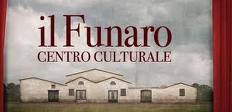Imagine a group of friends deciding to profit from the end of summertime, from September in Tuscany when the days are still sunny and the foliage starts tingeing with yellow. Imagine renting a villa plunged into the Tuscan landscape and enjoying its generous wine and food.
A cherished memory to keep for the coming rainy days. You could avail yourself of the villas for rent in Pistoia offered by Tuscany Holiday Rent because the Chianti area is so charming in those days and because a very special event is taking place in Pistoia at the Theatre Funaro.
The performance by Enrique Vargas called Oracles, from the 22nd September up to October the 1st 2011, is an opportunity not to miss because of the famous Columbian director and of the extraordinary story of the theatre itself. A unique theatre- workshop in Pistoia: a project fulfilled by four women beyond their wildest dreams.
It all began in 2009 when Antonella Carrara, Lisa Cantini, Mirella Corso and Francesca Giaconi were able to realize a very special theatre. They succeeded in buying a 900 sq meter site near the Pistoia hospital, previously occupied by ropeworks. Keeping faith to its original name the “Funaro” they meant to underline, in a way, the ideal continuity of the previous activity with the primary role of ropes in the stage machinery works. Thus the Funaro theatre, a multitasking craftsmanlike structure was organized. Thanks to the women’s bricolage skills they successfully set up a theatre, a rehearsal room, a storeroom-workshop, an intimate cafeteria, a theatre company guest residence. The management structure follows the very feminine attitude which accurately takes care of their guests. A special identity characterizes it, the vocation of joining both children and grown-ups’ educational training and the professional workshops of Cristina Morganti from the Tanztheater Wuppertal, Duccio Bellugi Vannuccini from the Theatre du Soleil of Ariane Mnouckine. The charm of the spot is certain. Andre Neumann, producer of shows of mythical figures such as Pina Bausch, Peter Brook and Tadeusz Kantor has been attracted by it. In fact he has presented the workshop with his personal files, containing projects, photos, contracts, collections of letters with theatre bigwigs such as Bob Wilson, Meredith Monk, Gassman and Mastroianni and Pina Bausch herself.
Now the Columbian director and anthropologist Enrique Vargas, the founder of the Teatro de Los Sentidos has chosen the Funaro as his Italian buen retiro for his experimentation on the poetics of senses and the relationship among sensory language, body memory and theatre. The focus is the unsaid, the silence which he believes being so functional to the real communication with the audience.
From El Polverin, a gunpowder factory near Montjuic Castle, Barcellona, Vargas’s actual residence in September and October 2011 he will move to the Funaro, Pistoia, to present his performance Oracles. The issues are the relationship between questioning and mystery, labyrinth, alchemy and fabula. During the performance, spread throughout the whole structure, each spectator at a time is being invited to follow an archaic and strongly symbolic journey, rich in esoteric inspirations ranging from Eleusinian Mysteries to the divination of the Great Arcanes of the Tarots. 
This manifesto performance has changed the ordinary way of going to theatre. No longer a conventional performance, it is an experience where the sensorial skills are involved, tasting, feeling, smelling, listening and watching. One is being guided to walk or sometimes crawl along underground passages, alone, disoriented in the dark. These mysterious tracks focus on four main threads: the labyrinth, the alchemy, the oracle and the tale , commonly linked by the question- mystery relationship. At various stages the spectator meets a character acting in different ways, who can either speak or be silent, show objects or fixedly observe. The psychological and emotional input is physically powerful. The experimentation has reached its climax. The theatre, in its conventional meaning, has denied itself to give way to the spectator’s inner involvement in a new unexpected introspection.


